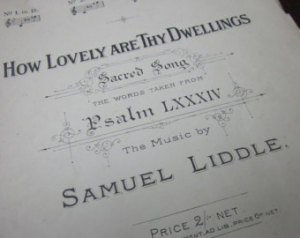Nora Isabel Adnams: Reading and Writing
‘If wet in the afternoon and we had to stay in, we would have word-making, letters cut out in cardboard, but we would have to see how many TEXTS we could remember and make up, or we would have to learn a psalm.’ (19)

Nora Isabel Adnams only briefly mentions her reading or writing habits within her memoir as she mainly focuses on her upbringing in a Barnardo’s children’s home in Barkingside, Essex. She does, however, appears to have experienced a good education, as evident in her writing style. She also appears confident in her own ability, as she does not feel the need to clarify her own reading interests in order to appear more intellectual or high brow. James Hinton suggests that working class authors ‘were anxious to deploy a taste for high culture as a means of distinguishing themselves from their self-assigned class’ (199). This is something that people studying working class writing have often commented upon, so it is interesting to that Nora omits to mention her own reading habits. A possible reason for this could be that she is writing for her family, meaning they would already know her interests, and that she would presumably feel confident enough to not have to prove her class status to them.
Although there does not seem to be any official statistics for the years 1901-1911 in which the memoir spans, a report by the Registrar General in 1876 found that 22% of women could not sign their own name (Web Page, UK Government). The signing of names seems to be a historic test for literacy, for example a study which took place in 1961, of UK Parishes in the 1750’s found that 66% of brides had marked the register with a cross rather than their name. The first official literacy test did not take place until the 1970’s, making it very difficult to compare Nora’s reading and writing skills to the population at large, however, we can can see from her writing that she is well educated, both from her discussions of school life and from her writing style.
Finally, the only explicity mention of reading and writing can be seen above, as Nora recalls playing word games and memorising psalms on a Sunday afternoon after church services. Rather than commenting on her enjoyment or distate of the activity, Nora comments ‘Heaven help the child that had not learnt what she was given!’ (19). This highlights the strictness of their education, and how these excercises were taken very seriously. More information on the general education of Nora Adnams, can be found in this blog post.
‘Nora Isabel Adnams’, ‘MY MEMOIRS OF DR. BARNARDO’S HOME, BARKINGSIDE, ESSEX’, , University of Brunel Library, Special Collection: 2:859
Century of Trends in UK Statistics – – Web Accessed on 2nd January 2015
Building the Literal Nation, University of Leeds – – Web Accessed 2nd January 2015
Hinton, James. ‘The “Class” Complex’: Mass-Observation and Cultural Distinction in Pre-War Britain’, Past and Present, no. 199, May, 2008
Samuel Liddl, How Lovely are Thy Dwellings Print – https://www.etsy.com/uk/listing/200745162/samuel-liddle-how-lovely-are-thy?ref=market – Web Accessed 2nd January 2015

Leave a Reply